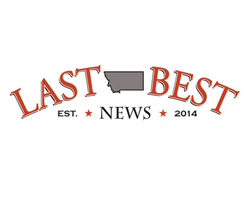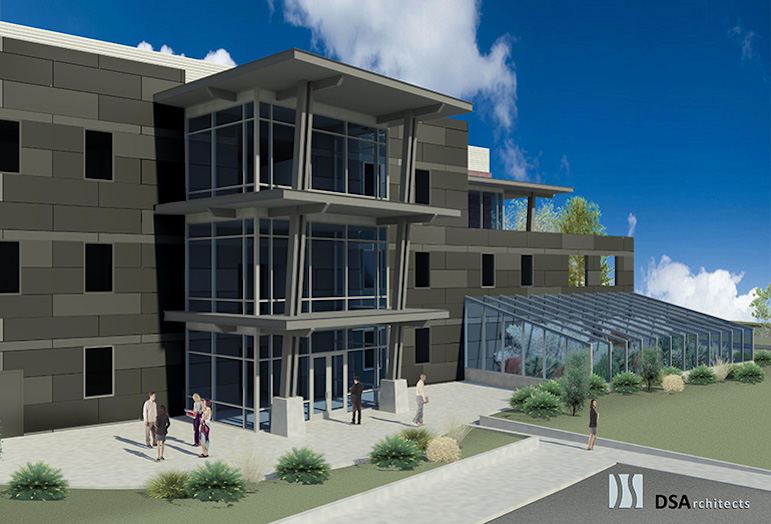Coal Board OKs $500,000 for MSU Billings Science Building

By Ed Kemmick
January 19, 2018 - The Montana Coal Board has voted to award $500,000 toward the completion of the new Yellowstone Science and Allied Health Building on the campus of Montana State University Billings.
The Coal Board, which happened to be meeting on the MSU Billings campus Thursday, voted to approve the full $500,000 requested by the school. It was the largest of nine requests totaling more than $1.4 million on the board’s agenda.

An architect’s drawing shows the proposed new Yellowstone Science Building on the MSU Billings campus.
The capital campaign for the $15 million project to expand and renovate the existing science building now has $13.5 million. The 2013 Montana Legislature appropriated $10 million for the project.
Bill Kennedy, president of the MSU Billings Foundation, said on Friday that the school will probably call for bids on the project late next fall or early next winter, with construction beginning in the spring of 2019.
The Legislature allocates grant money every two years to the Coal Board, using a portion of the state’s coal severance tax, which was established in 1975. The grants are intended to be spent in Eastern Montana cities, counties and reservations that have infrastructure needs directly related to the impact of coal mining or energy production tied to coal.
The Yellowstone Building project involves expanding and renovating the current science building, which was built in 1947. The goal is to incorporate the science and allied health programs, curriculum and technology into a state-of-the-art facility.
A press release from the MSU Billings Foundation said the school has a higher percentage of graduates working in the coal industry than any other institution of higher learning in Montana. Also, the foundation said, 15,538 MSU Billings graduates self-report that they are now working in Eastern Montana’s coal-impacted counties.
With changes in the coal industry, the foundation said, workers often seek out retraining or higher education options, and MSU Billings hopes to meet that need. Given the limited space and overcrowded laboratories in the existing science and allied health facilities, it is a challenge to accommodate additional students, the foundation said.
The Yellowstone Building is designed to provide STEM (Science Technology Engineering and Math) and health industry training in a modern facility for workers affected by changes in the coal industry, as well as others in coal-impacted counties. The foundation said the new building could help the region better diversify and adapt to the evolving economic climate.
“Eastern Montana’s economic health will increasingly rely on the ability to educate skilled workers in multiple industries, particularly in the STEM and health fields,” Interim Chancellor Ron Larsen said. “MSUB’s science and allied health programs aspire to meet the needs of these burgeoning industries. The Montana Coal Board’s generous contribution has taken us one step closer to providing a 21st-century learning and research environment for the region.”
On the foundation’s website, it is stated that the 30,000-square-foot expansion “will provide a hands-on laboratory environment, enhance research capacity, increase student enrollment and preparation in growing high-demand occupations, and will attract increasingly research-oriented faculty to the institution.”
Plans call for 16 labs dedicated solely to teaching, and 11 other labs dedicated to research, including a separate athletic training lab.

